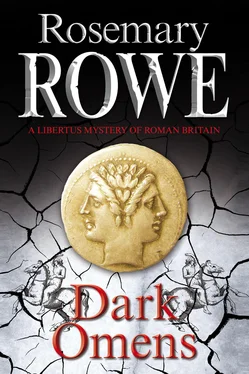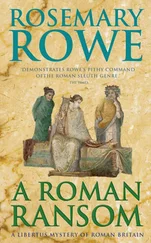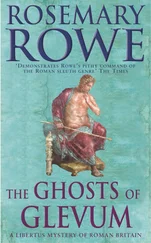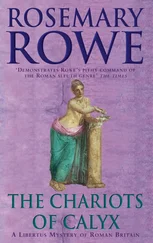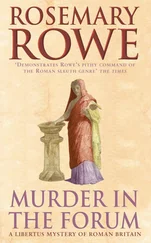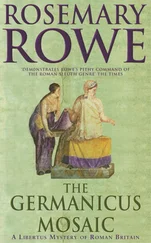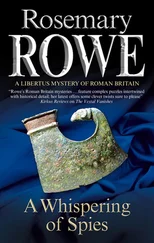Rosemary Rowe - Dark Omens
Здесь есть возможность читать онлайн «Rosemary Rowe - Dark Omens» весь текст электронной книги совершенно бесплатно (целиком полную версию без сокращений). В некоторых случаях можно слушать аудио, скачать через торрент в формате fb2 и присутствует краткое содержание. Жанр: Исторический детектив, на английском языке. Описание произведения, (предисловие) а так же отзывы посетителей доступны на портале библиотеки ЛибКат.
- Название:Dark Omens
- Автор:
- Жанр:
- Год:неизвестен
- ISBN:нет данных
- Рейтинг книги:4 / 5. Голосов: 1
-
Избранное:Добавить в избранное
- Отзывы:
-
Ваша оценка:
- 80
- 1
- 2
- 3
- 4
- 5
Dark Omens: краткое содержание, описание и аннотация
Предлагаем к чтению аннотацию, описание, краткое содержание или предисловие (зависит от того, что написал сам автор книги «Dark Omens»). Если вы не нашли необходимую информацию о книге — напишите в комментариях, мы постараемся отыскать её.
Dark Omens — читать онлайн бесплатно полную книгу (весь текст) целиком
Ниже представлен текст книги, разбитый по страницам. Система сохранения места последней прочитанной страницы, позволяет с удобством читать онлайн бесплатно книгу «Dark Omens», без необходимости каждый раз заново искать на чём Вы остановились. Поставьте закладку, и сможете в любой момент перейти на страницу, на которой закончили чтение.
Интервал:
Закладка:
Rosemary Rowe
Dark Omens
FOREWORD
The story begins in Glevum (Roman Gloucester, a prosperous ‘republic’ and a colonia for retired soldiery) on New Year’s Day AD193. The Kalends of January was perceived as a time of new beginnings and — as today — an occasion for good resolutions and wishes for good luck, as well as little offerings to the two-headed god Janus, for whom the month is named. Everyone did an hour or two of token ‘work’, thus inviting fortune in the year ahead, and visited neighbours (as the tale suggests) for the exchange of good wishes and symbolic sweetened gifts.
This particular Kalends, however, was a new beginning in more ways than the citizens of Britannia could have realized. Their province was, as it had been for two centuries by now, the most far-flung and northerly outpost of the Roman Empire: occupied by Roman legions, criss-crossed by Roman roads, subject to Roman laws and administered by a provincial governor answerable directly to Rome — and thus ultimately to the Emperor himself. The man who had worn the imperial purple for the last twelve years was (to give him the full list of titles he’d bestowed upon himself) Lucius Aelius Aurelius Commodus Augustus Herculeus Romanus Exsuperatorius Amazonius Invictus Felix Pius, a megalomaniac who was by this time increasingly deranged, and whose lascivious lifestyle and capricious cruelties were infamous. Hated by many, he was fearful of his life, imagining conspiracies on every hand, in consequence of which he was popularly said to have ‘spies in every house’.
However there was obviously cause for his mistrust since he was assassinated just around the time the story starts. There are many versions of exactly how and when he met his death — a popular myth (on which the film Gladiator was based) suggests that he was murdered at the New Year Games, in which he had certainly intended to take part, as he prided himself on his gladiatorial prowess, and exaggerated claims as to the numbers he had killed and the variety of animals that he had put to death — though detractors claim that his human opponents had been armed with wooden swords against his metal one, and the creatures had been helpfully dosed with opium.
Another account suggests that he was wounded by a poisoned blade, at a rehearsal bout the day before the games.
Most experts, however, are now agreed that he was murdered at his home on New Year’s Eve — though (rather like Rasputin) he proved difficult to kill. It is likely that his sister had already ineffectually attempted to poison him that night, which he survived by vomiting his dinner up again, and he was finally strangled by an athlete-slave, with whom he used to practise wrestling, though even then there is dispute about whether this happened in his bed or at his bath. (Think Roman baths here, with plunge-pools, steam-rooms and a scrape-down afterwards, not a modern tub of soapy suds.)
It seems that differing rumours were circulating from the start, though all shared the central fact that Commodus was dead. The strength of his unpopularity can be gauged from the fact that the senate instantly declared that he was a public enemy ( damnatio ), denied him funeral, and tried to expunge his name from monuments. The ex-governor of Britannia, Pertinax — patron and friend of the fictional Marcus in this story — was nominated as successor and acclaimed within hours.
News spread like wildfire, as such things always do, and one ancient writer makes the boastful claim that ‘news had spread to all parts of the Empire before the Agonalia’ — the major festival of Janus and Fortuna on the ninth. Given the time of year and the condition of the roads, this frankly seems unlikely, but for the purposes of the story it is taken to be true — though even here it is assumed that later (written) confirmation would have been required, and it is the arrival of this which sparks the riot in the book. There is no evidence that there were actually disturbances of this kind in Glevum and though fragments of an outsized stone figure were unearthed during excavations in the mid-twentieth century, there is nothing to suggest that it depicted Commodus or that it was deliberately destroyed. However, public demonstrations are attested in several places elsewhere in the Empire, including the pulling down of statues of the fallen Emperor.
Nor is there any evidence that the weather at the time was especially severe, in the way depicted in the book, although the effects described are based on genuine accounts of other bitter winters experienced elsewhere. Travel on icy roads was difficult. Dorn, a town which is mentioned in the text, was a small but significant settlement at the time, a centre for the gathering of tax, but is now a mere hamlet, scarcely mentioned on the map, a mile or two from Moreton-on-the-Marsh. Glevum was a much more important town: its historic status as a ‘colonia’ for retired legionaries gave it special privileges, and all freemen born within its walls were citizens by right. However, this coveted status, though it conferred prestige and legal rights, was no guarantee of wealth, and those who gained the rank merely by this accident of birth might well be struggling — like the farmer Cantalarius in the tale.
Most inhabitants of Glevum, however, were not citizens at all. Many were freemen, born outside the walls, scratching a more or less precarious living from a trade. Lucius, in the story, is a successful example of this type of man, with a flourishing import-export business at the docks, but others — like the tanner — led less salubrious lives. Hundreds more were slaves — what Aristotle once described as ‘vocal tools’ — mere chattels of their masters, to be bought and sold, with no more rights or status than any other domestic animal. Some slaves led pitiable lives, but others were highly regarded by their owners, and might be treated well. A slave in a kindly household, with a comfortable home, might have a more enviable lot than many a poor freeman struggling to eke out an existence in a squalid hut.
Power, of course, was vested almost entirely in men. Although individual women might inherit large estates, and many wielded considerable influence within the house, daughters were not much valued, except as potential wives and mothers, whereas sons were the source of pride. Indeed, a widow of a rich man who produced no surviving male might well be seen as a lucrative speculation for a prospective groom, who would then have rights to use the profits from her dowry (and inheritance) as his own, though she was entitled to the capital if he divorced her later on. A woman (of any age) was deemed a child in law, and lacking a father or male relative, would need a guardian. (Marriage and motherhood were the only realistic goals for well-bred women, although trademen’s wives and daughters often worked beside their men and in the poorest households everybody toiled.)
People of both sexes and from all walks of life were much concerned with omens at this time — though, as the story suggests, women were viewed as the more superstitious sex. Roman gods had temples in every major town and public attendance at some rituals — including the Imperial Birthday feast — was compulsory. Curse and prayer tablets were regularly offered at the shrines, as surviving examples indicate, and there were special officials at the temple whose function was to consult the auguries, or read the entrails, and ensure that sacrifices met the approval of the gods. The slightest deviation from proper ritual could mean that the offering was void and the entire ritual must be begun again, for fear of offending the Roman deities.
Most townspeople had recognized the Roman gods by now, but all the same a number of local gods survived, and were openly worshipped by their followers, often in conjunction with the Roman ones. In fact, the authorities officially declared quite a number of these Celtic deities to be manifestations of some member of the Roman pantheon — often Mars Lenis, as in this narrative — and the sacred places and shrines were recognized and adopted accordingly. Of course, a few rebellious souls still clung to ancient ways and followed Druid customs, though only secretly: the sect had been formally outlawed by the state because of its practice of human sacrifice, and the hanging of the severed heads of enemies (including Romans) as a grisly offering in the sacred groves of oak. (This was the ‘forbidden religion’ at this period: the few Christians — and it appears there were some in Glevum at the time — were regarded with a mixture of contempt and tolerance.)
Читать дальшеИнтервал:
Закладка:
Похожие книги на «Dark Omens»
Представляем Вашему вниманию похожие книги на «Dark Omens» списком для выбора. Мы отобрали схожую по названию и смыслу литературу в надежде предоставить читателям больше вариантов отыскать новые, интересные, ещё непрочитанные произведения.
Обсуждение, отзывы о книге «Dark Omens» и просто собственные мнения читателей. Оставьте ваши комментарии, напишите, что Вы думаете о произведении, его смысле или главных героях. Укажите что конкретно понравилось, а что нет, и почему Вы так считаете.
